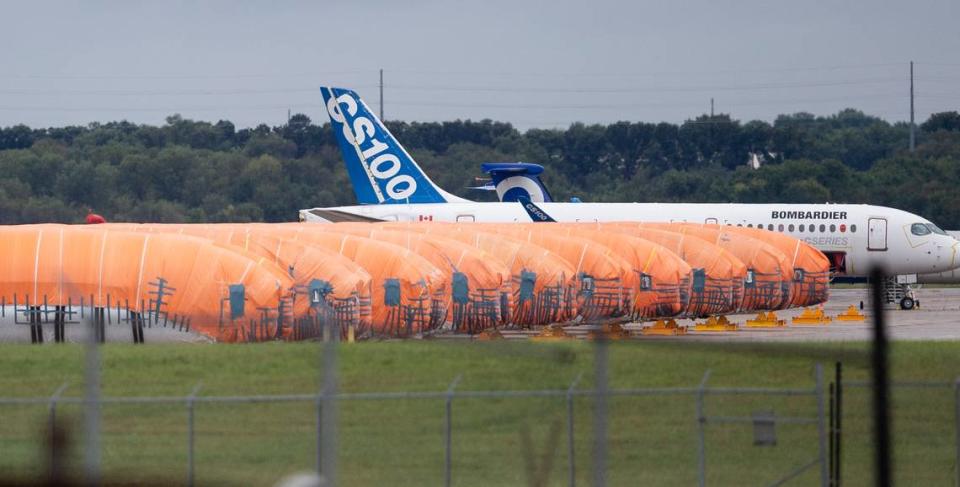Boeing and Spirit AeroSystems is a failed experiment that never should have happened | Opinion

It’s safe to say the 19-year experiment that is Spirit AeroSystems has officially crashed and burned.
What started out as a plot for Boeing to cut its costs by shedding higher-paid employees ended in the dead of night Sunday.
That’s the time the companies picked to announce that what was once Boeing’s Wichita plant is being sold back to the aviation behemoth in a stock-swap deal worth $4.7 billion — and a total value, including assumption of Spirit debt, of $8.3 billion.
In the end, about all that was accomplished here was the dislocation of thousands of loyal workers and a multi-billion-dollar windfall for a vulture capital investment firm.
Previously in this column, I recounted one of the most emotionally wrenching days of my professional life: Saturday, May 21, 2005. That was the day I sat on porches with weeping Boeing workers as they opened impersonal DHL Express envelopes telling them not to report to work the following Monday, because their services would no longer be required.
It was the culmination of the plant being sold by Boeing to an investment group led by Onex Corp., a Canadian firm specializing in buying troubled businesses, chopping costs, and then reselling them for big profits.
The whole point of the exercise was so that Boeing could abrogate labor contracts and cut costs by slashing its most experienced and loyal employees and replacing them with younger, cheaper workers. The motivations were transparent as glass.
The deal was engineered by one Harry Stonecipher, a former McDonnell Douglas chief executive who stuck around after a 1997 merger and ultimately took over at Boeing.
The merger largely replaced Boeing’s corporate culture, which had a reputation for fair dealing with its workers and listening to its engineers, with the Boeing of today, buying back Spirit in a desperate effort to rehab its tarnished reputation for making airliners that are safe to fly in.
Stonecipher would ultimately resign in disgrace after an affair with a subordinate, but not before laying the groundwork for failure of the company’s once-respected quality-control system.
Years of putting profits before people showed in 2019 and 2020, after control malfunctions caused two 737 Max airliners to plunge out of the sky, killing 346 people and leading to a worldwide grounding of the planes.
But those were overseas airlines and Boeing’s response was “heartfelt condolences,” while largely trying to pass off the responsibility to foreign mechanics and pilots.
The lack of quality control showed itself again earlier this year when on another 737 Max, a door plug in a Spirit-built fuselage popped out during an Alaska Airlines flight. Thankfully, no one was killed and federal regulators got serious with Boeing about cleaning up its quality-control act.
But whether stricter regulation will work or not is an open question right now.
On Friday, the U.S. Supreme Court overturned 40 years of precedent and curtailed the authority of federal regulatory agencies, making it easier for corporations to challenge actions that they find “burdensome.”
At this point, I’m not hearing hurrahs that Boeing is about to reclaim its historic position as Wichita’s No. 1 employer and the cornerstone of the “Air Capital of the World.”
Mostly, I’m hearing very little, other than faded memories of what Boeing used to represent in this town. That, and concerns about even more disruption of local people’s lives, as the deal for the re-acquisition of Spirit moves toward final conclusion in mid-2025.
Already, about 310 workers have been laid off due to slowdowns in Boeing production caused by the quality-control controversy, the Machinists Union that represents Spirit’s Wichita line workers reported about a week ago.
And there’s no guarantee that Boeing, when it takes over, will continue the provisions of a four-year labor contract that workers won after a brief strike last year.
This much is certain: Boeing owes Wichita a big apology for screwing with our economy and our people’s lives the way they did.
And Spirit? Well, good riddance.

 Yahoo Finance
Yahoo Finance 